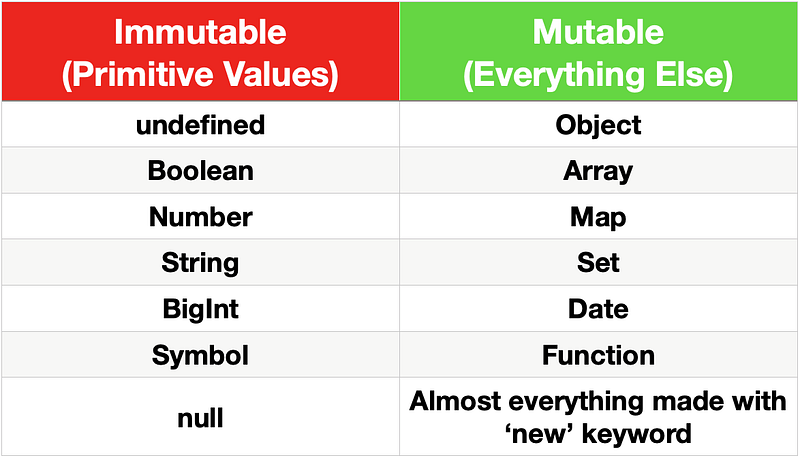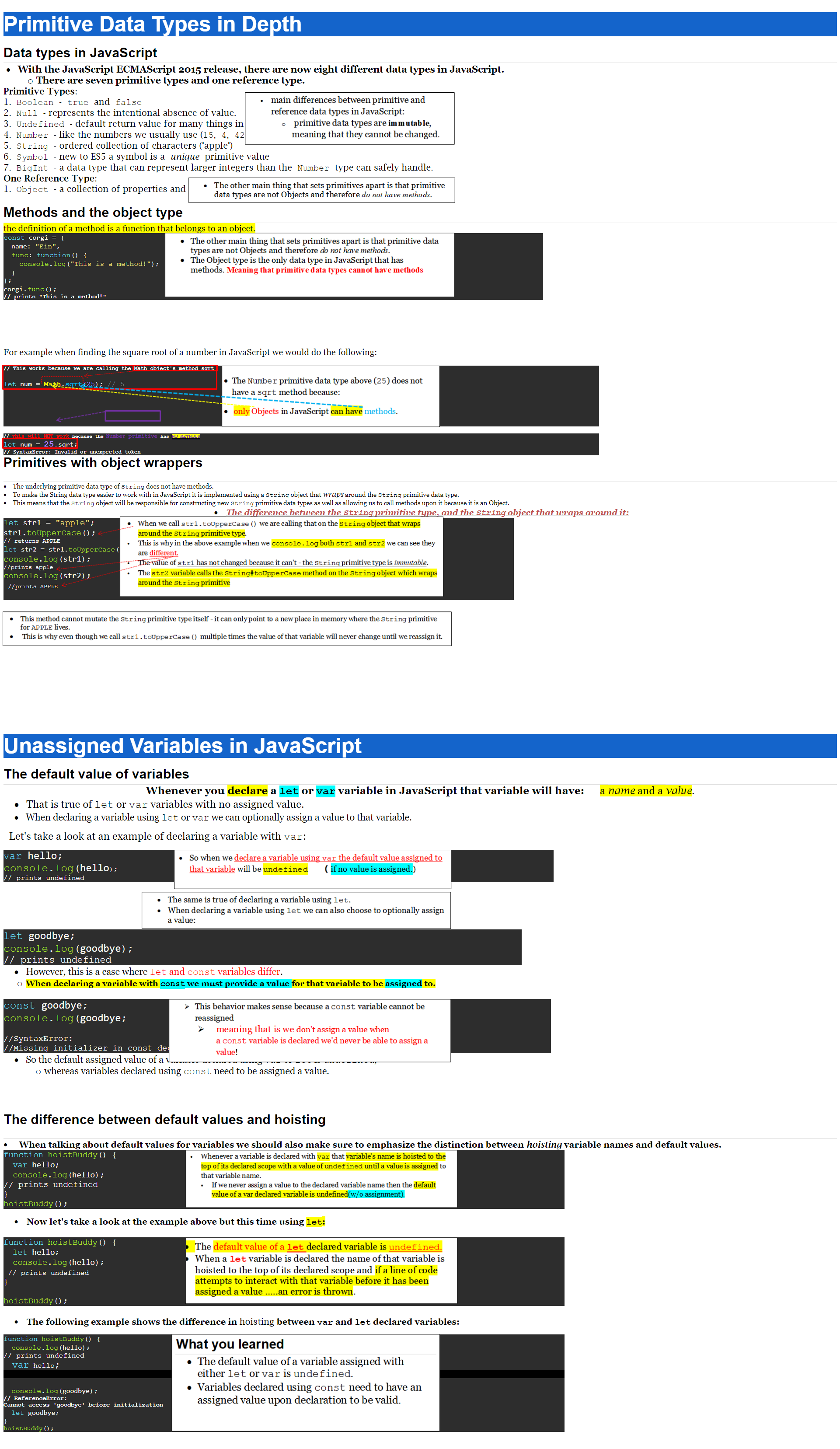Mutability And Reference VS Privative Types in JavaScript
Mutability And Reference VS Privative Types in JavaScript
Mutability && Primitive && Reference Examples

In JavaScript,
String values
are immutable, which means that they cannot be altered once
created.
For example, the following code:
var myStr = "Bob";
myStr[0] = "J";
cannot change the value of
myStr to
Job, because
the contents of
myStr cannot be
altered. Note that this does
not mean that
myStr cannot be
changed, just that the individual characters of a string literal
cannot be changed. The only way to change
myStr would be
to assign it with a new string, like this:
var myStr = "Bob";
myStr = "Job";Objects are passed by reference, are mutable, and can be modified by our functions:
function rotateLeft(arr, num) {
for (let i = 0; i < num; i++) {
let el = arr.pop();
arr.unshift(el);
}
}
let myArr = [1, 2, 3, 4, 5, ];
rotateLeft(myArr, 2);
console.log(myArr);Strings are passed by value, are immutable, and a new array is constructed and returned, because it cannot be changed in place.
function rotateString(str, num) {
return str.slice(num) + str.slice(0, num);
}let str = "foobar";
let ret = rotateString(str, 3);
console.log(str);
console.log(ret);Dereferencing
Arrays
To dereference an array, use
let [var1, var2]
syntax.
let arr = ['one', 'two', 'three'];let [first] = arr;
console.log(first);Objects
To dereference attributes from an object, use
let {} syntax.
Primitive Data Types in Depth

Comments
Post a Comment
Share your thoughts!